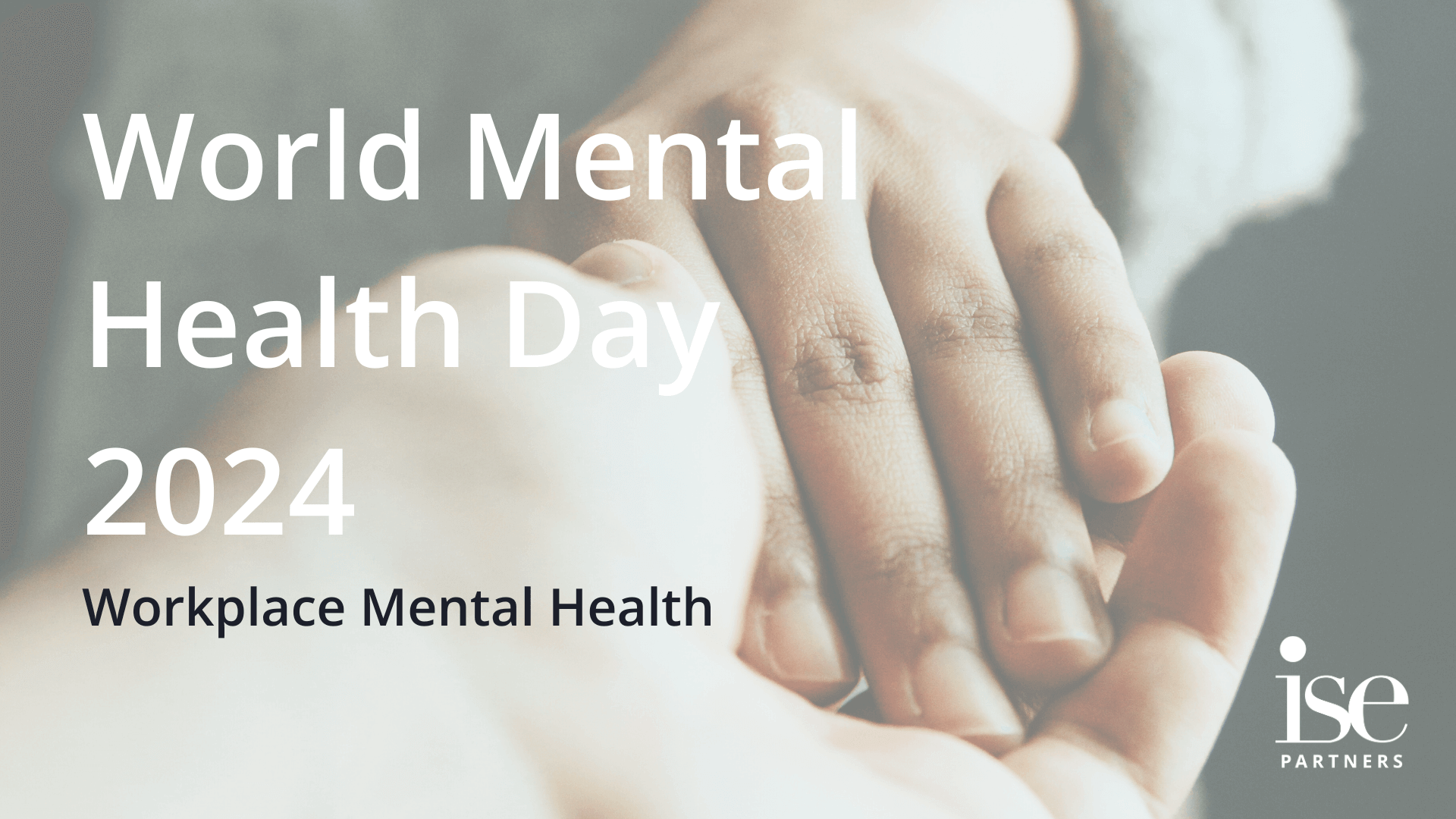World Menopause Day 2024: Raising Awareness and Offering Support in the Workplace
World Menopause Day is an internationally recognised event held annually on October 18, organised by the International Menopause Society in collaboration with the World Health Organization (WHO). This day, alongside Menopause Awareness Month in October, serves a critical purpose: to break the silence around menopause and improve women's health and wellbeing by raising awareness about menopause symptoms and the support available to women going through this stage of life.
In 2024, the focus of World Menopause Day is on Menopause Hormone Therapy (MHT), known in the UK as Hormone Replacement Therapy (HRT). This annual event shines a light on different topics related to menopause, and this year, MHT/HRT is under the spotlight to help women better understand the therapy’s benefits and risks. However, one of the most important areas of focus that goes beyond just the physical symptoms is menopause in the workplace.
Menopause in the Workplace: A Critical Issue
In the UK, women make up 51% of the population and 47% of the workforce, according to AXA Health's 2024 report. Many women in the workplace are in their 40s, 50s, and 60s, which puts them in the age range where they are likely to be experiencing menopause or perimenopause. In fact, nine million women in the UK are aged between 40 and 60, and three and a half million of them are over 50, which is typically a time when women are at the height of their careers, offering a wealth of experience and knowledge.
Yet despite their skills and experience, many women struggle to remain in the workforce during this time. According to AXA Health's 2024 report one million women have left their jobs due to menopause symptoms, such as hot flashes, mood swings, sleep disturbances, and cognitive difficulties. These symptoms not only affect women’s physical and mental health but also directly impact their productivity, career progression, and overall job satisfaction.
The Impact of Menopause on Women’s Careers
Research from AXA Health reveals that 68% of women have experienced a period of poor health during their careers, and 52% of those women had to take time off work due to health issues, including menopause. Women-specific health issues like menopause can have severe career consequences. For many, these health challenges lead to a lack of career progression or, in the worst-case scenario, to women leaving the workforce entirely.
According to the report, 83% of women reported facing practical or financial impacts from their health conditions. These disruptions make it all the more essential for workplaces to offer the right support. However, the reality is that discussions about women’s health in the workplace are still somewhat taboo. Just over half (55%) of women said that issues relating to women’s health are discussed occasionally or frequently at their workplace. While many women feel uncomfortable raising these issues, those who did have these conversations in the workplace found them to be supportive, with 75% saying they received understanding and help.
Building a Supportive Workplace for Women’s Health
Creating a supportive environment for women experiencing menopause can have far-reaching positive effects, not just for the women themselves but also for the organisations they work for. As more and more companies begin to recognise the importance of addressing women's health in the workplace, there are several ways businesses can help women during this phase of life.
- Flexible Working Arrangements
Offering options like flexible hours, remote work, or job-sharing can be a game-changer for women dealing with fluctuating energy levels, sleep disturbances, or other symptoms of menopause. These accommodations allow women to manage their health without having to sacrifice their careers. - Tailored Support for Specific Conditions
Providing specific support for menopause and other women’s health conditions, including educating line managers on how to handle these discussions with empathy, is crucial. Many women feel uncomfortable discussing their symptoms with managers or fear being judged. Training managers to respond appropriately can create a more inclusive and supportive work environment. - Access to Health and Wellbeing Resources
Women need access to comprehensive, accurate information on menopause, including options for managing symptoms. Whether through internal health programs or partnerships with external health organisations, businesses can help provide preventative steps and tailored advice to support women’s physical and mental wellbeing. - Workplace Adjustments
Making physical adjustments to the office environment can also be helpful. Ensuring that there are comfortable, well-ventilated spaces for women experiencing hot flashes, or simply creating a more adaptable and accommodating workplace, can make a significant difference. - Wellness Training for Managers
Managers and team leaders should be trained to recognise the impact of menopause on their staff and to offer empathetic support. Providing resources and training not only helps the individual women but also fosters an inclusive and supportive workplace culture.
A Broader Cultural Shift is Needed
The good news is that there has been progress. 43% of women in the AXA Health study reported that support for women’s health in the workplace has improved over the course of their careers. However, there's still much more to be done. The CIPD has highlighted that around one in six people have considered leaving their jobs due to a lack of support for menopause-related symptoms. Businesses risk losing valuable talent if they don’t take proactive steps to address the challenges that women face during menopause.
Conclusion
World Menopause Day 2024, with its focus on Hormone Replacement Therapy, serves as a reminder of the importance of addressing menopause-related issues, both in healthcare and in the workplace. Businesses have an opportunity—and a responsibility—to offer practical support to their female employees, especially as they navigate this life stage. By creating a more inclusive and supportive work environment, companies can retain their most experienced female talent, reduce absenteeism, and foster a culture of wellbeing.
As awareness grows, so too does the chance for real, positive change in how women experience menopause at work. With the right support, women can continue to thrive in their careers, even during the challenges that menopause may bring.
Resources
Bupa Women’s Health Hub: Menopause support
Women’s Health Concern (the patient arm of the British Menopause Society



